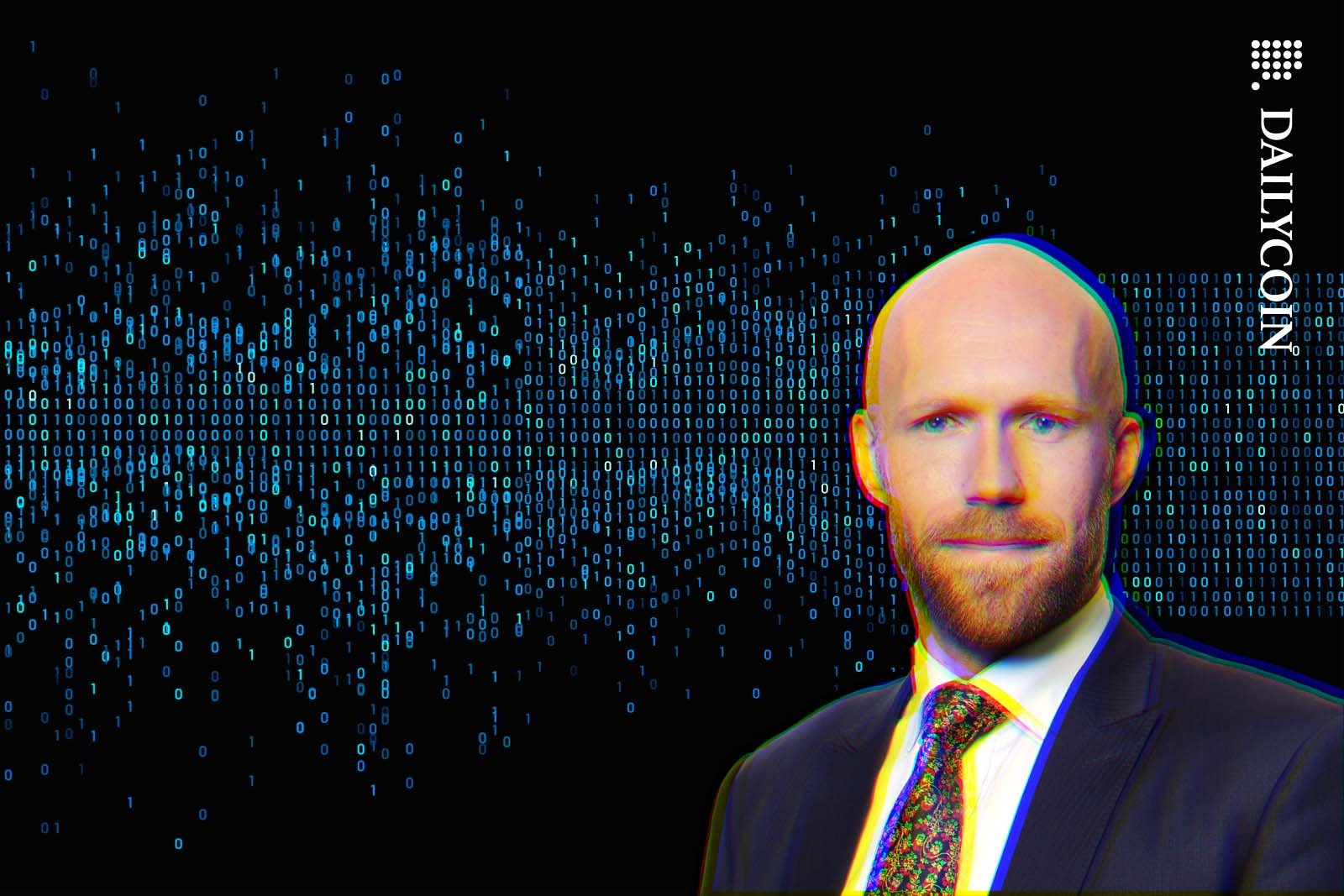
- Frederik Gregaard delves into Cardano’s focus on bringing more open-source.
- The Cardano Foundation’s CEO highlights open-source’s pivotal role in the blockchain industry.
- According to Gregaard, Cardano’s success stands as a testament to the open-source approach.
At the heart of innovation, particularly within the crypto industry, lies decentralization, transparency, community-driven collaboration, and interoperability. These ideals are the cornerstone of blockchain technology, fostering an environment conducive to progress and innovation.
Open source development has become a favored approach within the crypto industry for this very reason, hailed for its alignment with the principles behind blockchain and for promoting accessibility across the industry.
Today, several protocols in the industry have embraced an open-source approach to managing their networks, particularly Cardano, who has been a staunch advocate of true open-source and has made it a core focus.
Sponsored
In an exclusive interview, Cardano Foundation CEO Frederik Gregaard spoke to DailyCoin journalist Insha Zia about why open source is just what the blockchain industry needs to prosper.
Cardano’s Success Is a Testament to the Open-Source Approach
2023 was an exciting year for the Cardano Foundation as it delivered on many initiatives that involved fostering blockchain adoption and establishing pivotal partnerships, among other exciting developments.
However, one particular initiative that stood out over the past year was the Foundation’s focus on bringing more open-source to Cardano.
Sponsored
Reflecting on the past year, Gregaard emphasized his longstanding advocacy for open source since joining the Cardano Foundation three years ago. He described open-source as an “unsolved mystery of blockchain,” highlighting its crucial role in driving innovation and collaboration within the industry.
“I think this [open-source] is still one of those unsolved mysteries of blockchain. Blockchains have always been trust and verify. Open source has been the foundation of many blockchains. If you do a comparative analysis of what really drives a project like the Linux Kernel and other things, you see there’s more to the equation of what is open source,” he added.
Continuing on this theme, Gregaard stressed the transformative potential of open-source and its significance in delivering superior products to the market.
“I truly believe that if you can harvest the values of true open-source, you will get a better product-to-market fit,” He told DailyCoin.
To support his assertions, the Cardano Foundation CEO cited Cardano’s remarkable stability and strategic approach, attributing much of its success to its open-source foundation. With Cardano’s six-year uptime and academic peer-reviewed foundations, Gregaard underscored the pivotal role open-source has played in the protocol’s success.
Cardano Foundation’s Open-Source Journey
The Cardano Foundation CEO shared with DailyCoin that the company’s journey into open-source hasn’t always been smooth sailing, highlighting the challenges and learning opportunities it encountered.
The Cardano chief mentioned he often heard that developer experience on the network wasn’t as seamless as on other blockchains.
“I heard a lot that the developer experience [on Cardano] was not as good or smooth as it can be with other blockchains,” Gregaard revealed.
For those unaware, Cardano fundamentally does not have a different smart contract framework. While Solidity and Vyper are the most popular and widely used smart contract languages across a range of blockchains for their ease of use and compatibility with Ethereum, Cardano utilizes its own language called Plutus and a unique transaction model known as the EuTxo.
This architecture can pose challenges for dApp development and communication with other blockchains since it doesn’t use the same standard as other protocols, thus affecting compatibility. This also leads to a lack of variety in DeFi options because leading projects in the industry have to recode their dApp to fit Cardano’s model entirely.
Recognizing the importance of addressing this issue, Gregaard stated that the Cardano Foundation made it a priority to enhance the developer experience on the network.
“What we really set forward to do was learn about open-source while deploying a native open-source part to a problem that can enhance the developer experience on Cardano.”
Gregaard told DailyCoin that the solution for the Cardano Foundation was the long development of its very own programming language: Aiken.
Aiken’s Open-Source Impact
Aiken is a smart contract programming language tailored for Cardano and is geared toward making the developer experience on the network better. Gregaard sheds light on its inception, explaining:
“Haskell, despite being a fantastic programming language, only increased the barriers of coding, leading to many people not doing it right. So having a rust-based language, which could compile smart contracts on the Cardano blockchain, was something we really wanted to do.”
Given Haskell’s complexity, the CEO emphasizes that the focus was on delivering a product that maintained speed and security and was native open-source.
Remarkably, the Cardano Foundation CEO believes the investment paid off, revealing to DailyCoin,
“If you look back in the last two months, you can see that 10% of all transactions on the mainnet and smart contracts are actually using Aiken. So, not only is it a lot faster, but it also reduces the execution costs by double digits and substantially lowers the entry barriers into the Cardano ecosystem.”
Cardano’s focus on open source, exemplified by initiatives like the development of Aiken, showcases how it amplifies the very ideals of decentralization and community-driven innovation within its ecosystem.
On the Flipside
- With the launch of CIP-1694 slated for a Q1/Q2 2024 rollout, the Voltaire era is expected to transform Cardano into one of the first major blockchains to achieve “true” decentralization.
- According to Cardano’s development report, the network hosted over 36,000 smart contracts at press time.
Why This Matters
Open source embodies principles that align closely with the blockchain industry’s foundational values. By promoting transparency, collaboration, and accessibility, the Cardano Foundation showcases that this approach is not only a way to foster innovation but also to ensure its solutions remain adaptable and relevant.
Click here to watch the full interview on YouTube:
Inside Cardano’s Vision: CEO Frederik Gregaard Talks 2023 Milestones & 2024 Goals
Read DailyCoin’s last interview with the Cardano Foundation CEO:
Cardano Braces for Life Without the Foundation, What Happens After Voltaire?
